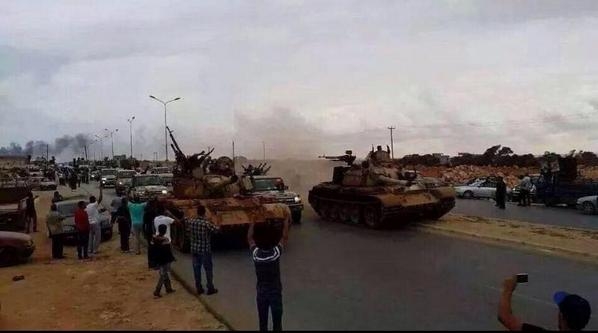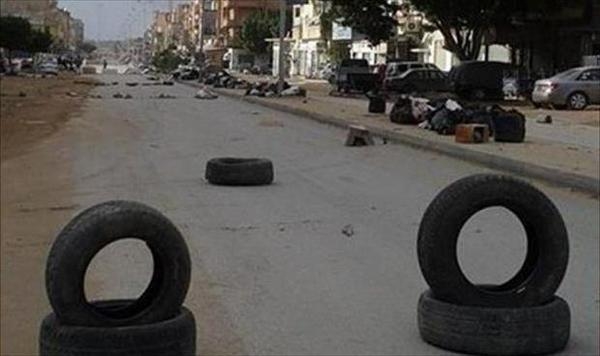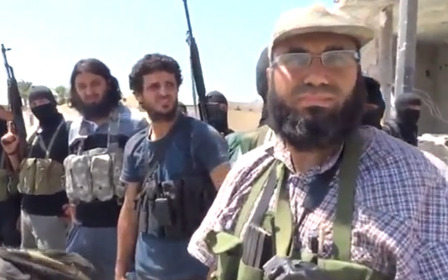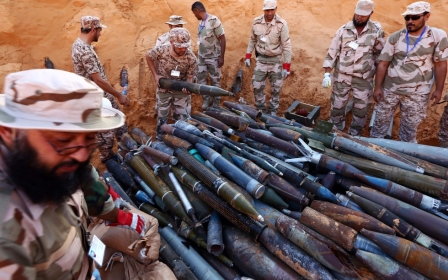Libyan army retakes Benghazi airport, city's largest militia base

Libya’s armed forces announced on Friday that they have regained control of residential areas of the eastern city of Benghazi, where a coalition of armed militias have held sway for several months.
Two army units, the 21st stormtrooper brigade and 204 tanks division, advanced on Thursday towards Libya’s second city from the town of al-Bayda, some 200 kilometres east of Benghazi.
The forces retook control of Benina International Airport, which has been a flashpoint for battles in recent weeks - fierce fighting there on 9 October killed militia leader Salim Nabbous.
After taking the airport, the Libyan army brigades advanced further south-west towards central Benghazi.
Heavy clashes then ensued inside the city between Libya’s armed forces and fighters from the Shura Council of Revolutionaries, a coalition of militias including Ansar al-Sharia that was formed in June 2014.
After intense fighting, the Libyan army announced on Friday morning that they had retaken the Amin district of Benghazi, a residential area in the south of the city.
Some residents of the city took to the streets to welcome the incoming soldiers, who advanced with heavy weaponry and tanks.
February 17 Martyrs Brigade base retaken
Unverified images later circulated of Libyan soldiers celebrating in front of the crumbling façade of a military base controlled by the February 17 Martyrs Brigade.
The brigade, the largest militant group operating in Benghazi, was financed by the Libyan defence ministry but is strongly opposed to rogue general Khalifa Haftar’s anti-militia campaign.
In a statement released on the group’s Facebook page late on Thursday, February 17 had denounced “the slave Haftar and his allies”, promising to strike Haftar’s forces “with an iron fist.”
However, in what could be a significant turning-point in the battle for Benghazi, Sky News Arabia confirmed on Friday that Libyan army troops had regained control of the base belonging to February 17, the largest militant group operating in Benghazi.
Many areas of Benghazi remain riven by armed struggles – residents of Wahishi, a district in the east of the city, reportedly set up their own road-blocks in anticipation of an outbreak of fighting.
Five young men from the district were killed on Thursday morning in fighting with militias.
Militia leader killed, Libyan forces united
The advance comes just a day after the Ansar al-Sharia leader, Mohammed al-Zahawi, was reported killed.
Sources told local news site Libya Herald that Zahawi, a musician turned militant who has previously been wrongly reported dead, was injured in an airstrike in Benghazi.
According to the site, he finally died in a hospital in Turkey last Thursday, after being transferred between several different Libyan medical facilities.
Increased army control of Benghazi also comes after the Libyan army last week officially announced its support for renegade general Khalifa Haftar’s anti-militia campaign, dubbed Operation Dignity.
Haftar, a former Gaddafi-era general who defected decades ago and moved to the US, launched a campaign in May 2014 aiming to stamp out the militias who were increasingly controlling Libya’s public institutions.
Last week’s announcement of Libyan army support for Haftar’s campaign, often rumoured to have support from Egypt and the UAE, is the first official indication that the forces are co-ordinating.
Until last week, Haftar, whose campaign was dubbed a “coup” by politicians in power at the time, had relied on brigades and forces who defected from the armed forces to join his cause.
Middle East Eye propose une couverture et une analyse indépendantes et incomparables du Moyen-Orient, de l’Afrique du Nord et d’autres régions du monde. Pour en savoir plus sur la reprise de ce contenu et les frais qui s’appliquent, veuillez remplir ce formulaire [en anglais]. Pour en savoir plus sur MEE, cliquez ici [en anglais].






